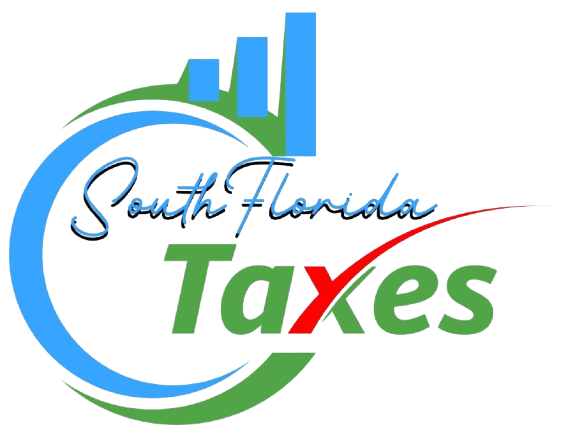Tax Preparation Tips
- Home
- Tax Preparation Tips
Essential Tax Preparation Tips: Maximize Your Refund & Minimize Stress
Thanks to all of the new technology we’ve integrated into the way we handle your business, all of the information you need is right at your fingertips. With features such as:
Gather Your Essential Documents
Start your tax prep by collecting the right paperwork. This will help you stay organized and avoid last-minute stress. Here’s what you’ll need:
- W-2 Formsfrom all employers
- 1099 Formsfor freelance, contract, or side income
- 1098 Formsfor mortgage interest
- 1095 Formsto confirm health insurance coverage
- Investment Income Statements(1099-DIV, 1099-INT, 1099-B)
- Charitable Donation Records
- Last Year’s Tax Returnfor reference
Consider Your Filing Status
Your filing status plays a crucial role in determining your tax rate and eligibility for certain deductions. Be sure to choose the one that fits your situation best:
- Single
- Married Filing Jointly
- Married Filing Separately
- Head of Household
Maximize Your Benefits: Tax Strategies for Wage Earners
Take full advantage of employment-related tax benefits by reviewing your contributions and deductions:
- 401(k) Contributions: For 2024, the contribution limit is $23,000. If you’re 50 or older, you can add an extra $7,500 as a catch-up contribution. This reduces your taxable income and builds your retirement savings.
- Health Savings Account (HSA): If you have a high-deductible health plan, maximize your HSA contributions. HSAs offer a triple tax advantage—contributions are tax-deductible, growth is tax-free, and withdrawals for medical expenses are tax-free.
- Flexible Spending Accounts (FSAs): Don’t forget to use any remaining FSA funds before they expire. FSA funds are typically “use-it-or-lose-it,” so plan accordingly.
Investment Income: Key Considerations
Managing your investments with tax efficiency in mind can save you a lot in the long run. Here are a few things to keep in mind:
- Stock Options (ISOs/NSOs):
- Review your vesting schedules and be aware of any tax implications when you exercise your options.
- For ISOs, watch out for Alternative Minimum Tax (AMT).
- For NSOs, the spread at exercise is taxed as ordinary income.
- Restricted Stock Units (RSUs):
- Keep track of your vesting dates and be mindful of the fair market value at the time of vesting. Consider your withholding options to avoid underpayment penalties.
- Employee Stock Purchase Plans (ESPP):
- Review your purchases and sales during the year. Pay attention to the difference between qualifyingand disqualifying dispositions, as the tax treatment can differ significantly.
- Capital Gains:
- Review your investment portfolio for potential tax-loss harvestingopportunities, which can offset capital gains.
- Be strategic about timing your salesto take advantage of lower long-term capital gains rates.
Relocation & State Taxes
If you moved to a new state this year, make sure you’ve taken the right steps for state tax purposes:
- Update Your State Tax Withholdings: Notify your employer or payroll provider of your new address to adjust withholdings accordingly.
- Part-Year Resident Returns: If you moved between states, you’ll need to file part-year resident returns in both your old and new states.
- Track Your Move Dates: Maintain detailed records of your move date and residency changes, as they’ll be crucial for tax filing.
Charitable Contributions: Maximize Your Deductions
Donating to charity isn’t just rewarding—it can also lower your taxable income. Consider these giving strategies:
- Donor-Advised Funds (DAFs): Donate to a DAF to get an immediate tax deduction while spreading out your charitable giving over time.
- Qualified Charitable Distributions (QCDs): If you’re 70½ or older, you can make tax-free donations directly from your IRA.
- Appreciated Stock Donations: Donating stocks that have appreciated in value can help you avoid capital gains taxes while still claiming the full market value of the donation as a deduction.
Catch Up on Past Tax Returns
If you haven’t filed your taxes for previous years, now is the time to catch up. Remember, you can generally only claim refunds for the past three years, so don’t leave money on the table.
COVID-Related Distributions & Remote Work Deductions
- COVID-Related Distributions: If you took a distribution from your retirement account in 2020 due to COVID, you may be eligible to repay it within three years for a tax refund.
- Remote Work Deductions: If you worked from home in 2023, track any eligible home office expenses, especially if you’re self-employed or a freelancer. You may be able to claim deductions for business-related home office costs.
Preparing for a Rewarding Tax Season
Effective tax preparation is about more than just avoiding mistakes—it’s about uncovering opportunities to save. By staying organized and utilizing these tax strategies, you can make this your most financially rewarding tax season yet.
Have questions or need personalized help? Contact us today—we’re here to guide you through every step of the process.

